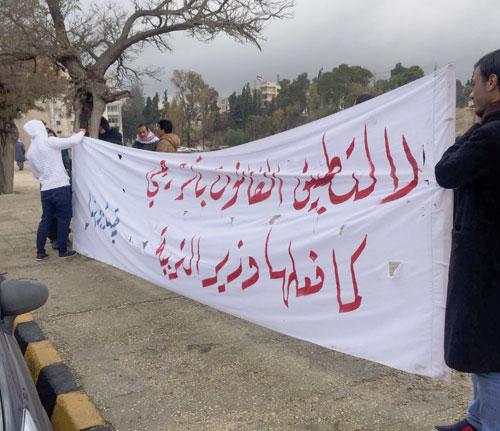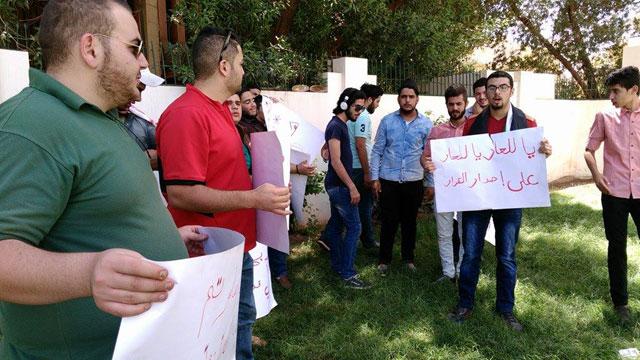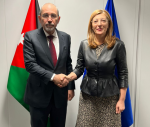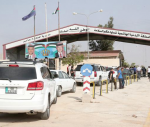You are here
Parents protest move to impose proficiency test on high school students who study abroad
By Laila Azzeh - Apr 28,2016 - Last updated at Apr 28,2016
AMMAN — Scores of families held a sit-in outside the Education Ministry on Thursday in protest against a decision to make students who sit for secondary school exams outside Jordan undertake a proficiency test.
The decision was taken earlier this month by the Higher Education Council.
"We reiterate that the decision only applies to countries that do not have a unified national secondary exam similar to the Tawjihi [General Secondary Education Certificate Examination]," Higher Education Ministry Secretary General Hani Dmour told The Jordan Times.
While officials at the Education Ministry were unavailable to comment on the issue, Dmour underlined that universities are open to all those whose secondary school certificates are accredited by the Education Ministry.
"If the Education Ministry accredits and approves the certificates students obtain abroad without the proficiency exam, we have no problem enrolling them in universities," the official highlighted, saying that "parents should understand and respect the regulations".
However, for Ahmad Sarayreh, whose son is currently studying in Sudan, the new measures are "unfair", as they come after students had been allowed to obtain their secondary school degrees from countries like Libya and Sudan.
"The proficiency exam is like punishing students for something they were allowed to do before," he said.
"We all had consulted the Education Ministry before deciding to send our children abroad, and it said there was no problem. The decision should not be applied retroactively," said Sarayreh.
Mahmoud Riyalat, whose son is studying in Turkey, said the "arbitrary" decisions taken by the Education Ministry are what prompted him to send his son abroad.
"Tawjihi is getting harder year after year. My son is good in school, but he cannot get the grades that allow him to study what he wants due to the unreasonable high scores universities require to admit students," he told The Jordan Times.
Riyalat, who took part in the protest, noted that families have endured financial and emotional costs by sending their children to study abroad.
"And these difficulties are not enough to obtain an accredited certificate," he noted.
In earlier remarks, Dmour noted that the decision includes students who obtain their secondary school degree from Arab schools located in foreign countries, such as the Libyan school in Ukraine.
He noted that hundreds of Jordanian students have travelled to earn their secondary school degree from abroad to come back with certificates that allow them to enrol in specific university majors.
“We want to streamline the process. The proficiency exam will be prepared by the Education Ministry under the supervision of the Higher Education Accreditation Commission,” said the official in a previous interview with The Jordan Times.
He added that the decision excludes those who were enrolled under international exam systems like the IGCSE or IB.
Although the decision to hold a proficiency exam came a few weeks after a secondary exam paper leak took place in Sudan and involved Jordanian students, Dmour underlined that the ministry had been “studying the issue for a while”.
In March, Sudanese authorities detained a number of Jordanian students over claims that the national exam test papers were leaked and obtained by some of them.
Related Articles
AMMAN — The Education Ministry’s general examination committee on Thursday approved the final version of the General Secondary Education Cer
AMMAN — Dozens of students and their parents picketed Parliament on Tuesday to protest against a recent Education Ministry decision not to a
AMMAN — Jordanian students in Sudan on Tuesday started an open-ended strike outside the Kingdom’s embassy in Khartoum, demanding a review of


















